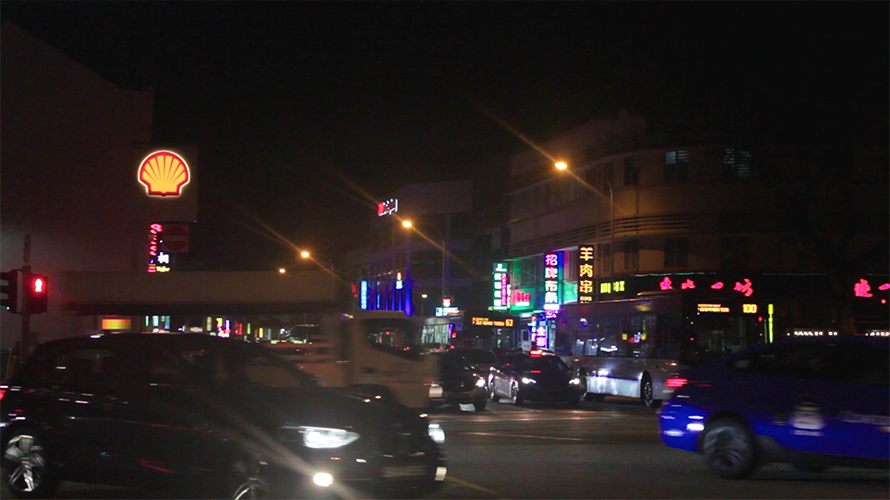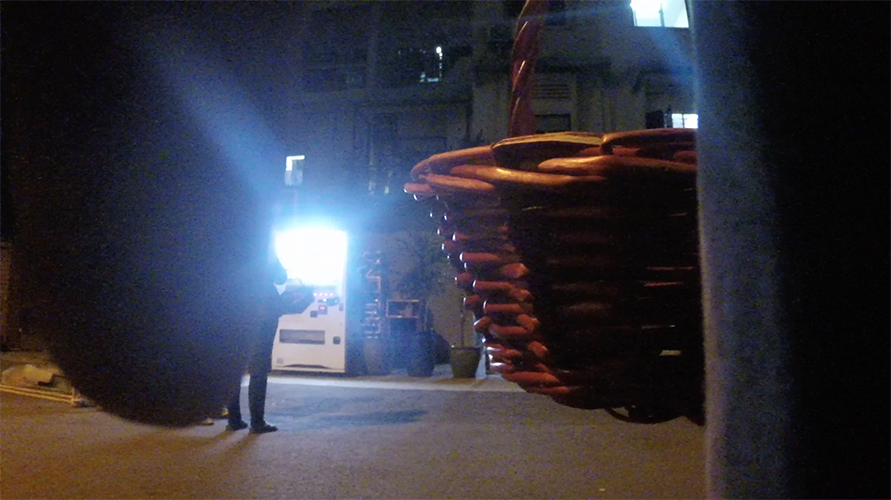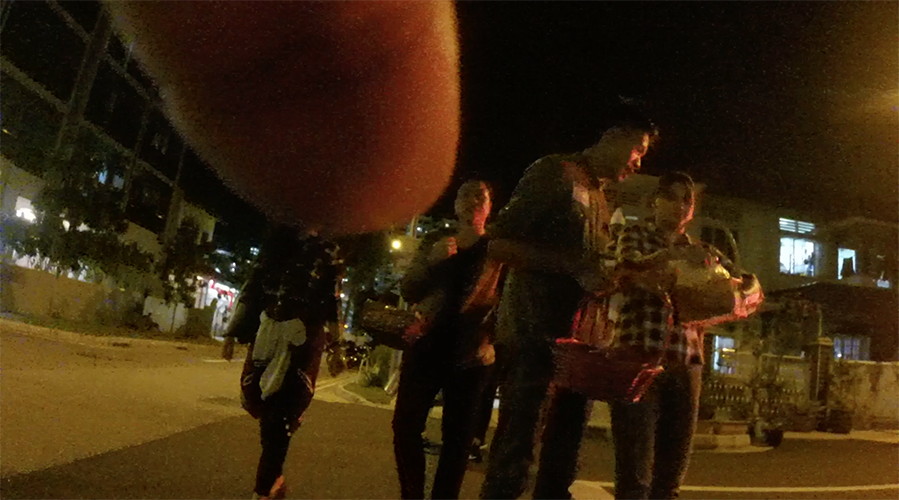No, Geylang isn’t known by the rest of the world to have a “church” in it.
Food. Merchandise. Sex? Yes, that would be the Geylang of Singapore.
If Geylang were a face, it would display people of different races – Indian, Bangladeshi, Indonesian, Chinese, Filipino—morphing and pooling together into a tapestry of Malay and Oriental heritage. Geylang would have the mouth that speaks multiple languages and histories. It would have the tongue of a cook, perfectly attuned to succulent dishes like exotic frog porridges and tasty winter melon pastries. It would have the ears that hear of endless indistinct murmurs and rumbles of passing buses and cars. And it would have these deep eyes—eyes that have seen darkness in the secrets of its streets; eyes that have beheld brothels and great houses of worldly pleasure. It would’ve been the witness to the tricky history of abuse and human trafficking. Behind closed doors and quiet windows, it hides skeletons and people with broken hearts.

Currently, the red light district of Singapore is not as crowded as it was a decade ago. Streets are now cleaner. Alleyways are now safer. And the moves to combat human trafficking have become more effective.
But even with these recent improvements, we still find handfuls of women illegally stationed along the sidewalks. Most licensed prostitutes wait for their customers inside brightly lit brothels. The ladies are clad in nothing but tight shorts and tighter tank tops, while the men roam the streets like hungry nomads.
In the midst of this unlikely scenery, One Voice Magazine had the privilege to walk alongside a church of young adults who carried baskets of biscuits, sweets, and love letters for the prostitutes.
Some locals call these people “missionaries.” Most call them the “Hallelujah People.” Perhaps that label started out as a joke, but it turned out to be a declaration of God’s Kingdom coming to invade the streets, replacing the darkness with utmost praise.
A new story unfolded before us as our feet took us on a journey with the Glory Walkers of Geylang. I came away from the experience with three lessons:
1) People Need Love (Not Condemnation)
We carried chocolates, biscuits, and gospel tracts in baskets. Gospel tracts were presented as heartfelt letters in varied languages – Chinese, English, Hindi, Tamil, Bahasa, and more. They were thoughtfully prepared in flowery paper and pretty letterings. The Glory Walkers offered food and the letter—and if possible, a prayer for their needs. Most of the ladies declined the prayer, but they accepted the other goodies.

The Glory Walkers didn’t impose Bible verses, nor did they condemn the prostitutes. Instead, they boldly came to them, offering to meet a need—whether it was a hug or just a listening ear. They came with love in action, not in condemning sermons.
They genuinely tried to build rapport and friendship, showing that real love still existed.
2) Impact Entails Consistency (and Perseverance)
David and Abigail, two of the Glory Walkers, approached a pimp (called “uncle” in the streets) and actually hugged him. The uncle smiled back and greeted them as if they were his good friends. (Because they were indeed his friends!) David and Abigail pulled up some seats and conversed with the uncle, laughing, and sharing stories.
I didn’t think it could be possible.
The Glory Walkers even gave the basket of goodies to the uncle in order for him to distribute the contents to the ladies inside the brothels.
“How long did it take to build rapport like that?” I asked David later.
“It took around two years,” he said, as if it were a simple feat.
Wow, I thought. Two whole years to build rapport like this?
Consistency is key. David and Abigail aren’t doing large-scale outreaches like international crusades or epic youth conferences. They are only doing little things consistently like walking in the red-light district for an hour every week.
The “little things” put together turn into “big things” as they make deeper impact in the lives of people. Consistent acts of kindness trump over extravagant one-time big-time events.
3) Jesus Hung Out with “Sinners” (and Loved Them)
One of the leaders of the Glory Walk said it aptly: “They’re being Jesus to them [the prostitutes and the pimps].”
Isn’t that what Jesus did? He ate with prostitutes and tax collectors—people whom religious leaders in His day judged as the sinful scum of the earth. Jesus befriended and included the unlikeliest people into His fold.
Though the brothels displayed seductive façades of red and pink lights, gold letterings, and Taoist idols, the Glory Walkers still planted their feet outside the brothel doors in love, claiming them all for Jesus. It didn’t matter what other people thought. Pimps and prostitutes were worth much in His eyes. Jesus loved them, too, and He never stopped pursuing them.
A Challenge to Churches
By now, the red light district already knows the people with the baskets. The basket of goodies have become their iconic symbol. It’s what made them stand out. Whenever locals see the basket, they immediately know—the Hallelujah People have arrived.

I started asking myself hard questions: What are the churches in the Philippines known for? Does my community know us by our acts? When we walk in the streets, do they know that we represent Jesus?
The world is watching and waiting. There are thousands of needs that we are called to fill so that the world might be curious and ask, “What makes you different? Why are the Christians so kind?”
The Church of Geylang has heard these questions many times by now. And it has opened opportunities for countless of lost hearts to find Jesus. In seeking to bless God, the Church of Geylang blesses others.
Love. Compassion. Kindness? Yes, these exist and thrive in Geylang after all.
Nicole is part-nerd and part-artist. She’s a passionate speech pathologist, writer, dreamer, occasional ventriloquist, and a total geek for stories. She dances through words and writes to speak life to readers. She also regularly blogs at https://nicolegusto.com





